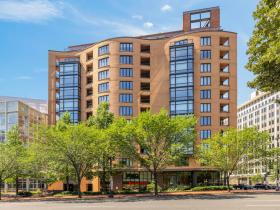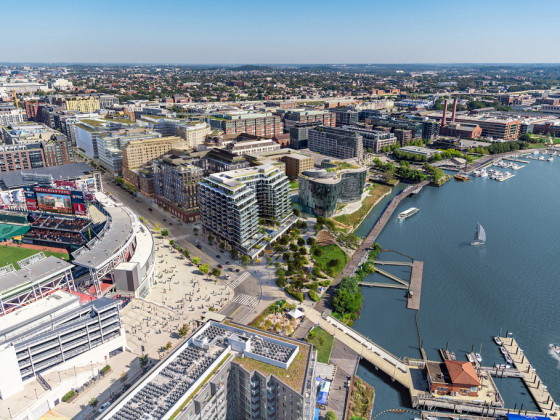What's Hot: Did January Mark The Bottom For The DC-Area Housing Market? | The Roller Coaster Development Scene In Tenleytown and AU Park
 First Timer Primer: The Inclusionary Zoning Process
First Timer Primer: The Inclusionary Zoning Process
✉️ Want to forward this article? Click here.
As the city struggles to build and maintain enough affordable housing to keep DC vibrant, UrbanTurf is taking a closer look at what inclusionary zoning (IZ) entails and how the process works.
First, a refresher on the definition of inclusionary zoning. As UrbanTurf has previously reported, this particular program involves housing units that developers set aside to rent or sell to low- and moderate-income households.
In order to have the opportunity to take advantage of IZ, one has to enroll in a lottery administered by the Department of Housing and Community Development (DCHD) and attend a two-hour orientation given by a community-based organization (CBO).

Single-Family Maximum Rent and Purchase Price Schedule
There is a Maximum Rent and Purchase Price Schedule which enumerates the maximum allowable rents and purchase prices for IZ units in both single- and multi-family developments. These factor in the average cost of utilities and condo or homeowners’ association fees with the intention of keeping prospects paying no more than 38 or 41 percent of their gross monthly income on rent or the mortgage.

Multi-Family Maximum Rent and Purchase Price Schedule
When the earmarked IZ units in a given property deliver, the developer notifies DCHD, which will in turn notify all households registered with the corresponding income and occupancy requirements to determine their interest level in one of the units. Individuals who submit a short form indicating their interest are then placed in the lottery for that unit. At least four entrants are chosen through the lottery to go through the qualifying phase.
The four entrants are given ranked preference, but only the highest ranked household will be notified of their position. Within 45 days, the entrants must submit a signed and notarized Declaration of Eligibility and a proof of income, as well as satisfy affordability and household size requirements in order to have a chance at securing the property.

The 2015 income eligibility limits, based on an area median income (AMI) of $109,200
Prospective renters will submit the aforementioned documents to the property developer or management company.
Prospective homebuyers will submit those documents to the CBO, attend an eight-hour homebuyer training course, and obtain a pre-approval letter from a mortgage provider.
Assuming that the prospect is eligible and has completed all of the requirements, they are given 15 days to either enter into a lease or a pre-sale contract for the unit. If none of the lottery winners are eligible or submit their paperwork, the unit goes back to the notification phase of the lottery and the process starts over.
Registration for the IZ lottery expires every two years. A CBO employee estimated that there are over 4,000 individuals registered for the lottery for 2016, with only 170 new IZ units slated to come online this fiscal year.
See other articles related to: affordability, affordable housing, affordable housing dc, dc housing inventory, dchd, inclusionary zoning, iz, zoning
This article originally published at https://dc.urbanturf.com/articles/blog/the_inclusionary_zoning_process/11217.
Most Popular... This Week • Last 30 Days • Ever

As mortgage rates have more than doubled from their historic lows over the last coupl... read »

The small handful of projects in the pipeline are either moving full steam ahead, get... read »

Lincoln-Westmoreland Housing is moving forward with plans to replace an aging Shaw af... read »

The longtime political strategist and pollster who has advised everyone from Presiden... read »

A report out today finds early signs that the spring could be a busy market.... read »
DC Real Estate Guides
Short guides to navigating the DC-area real estate market
We've collected all our helpful guides for buying, selling and renting in and around Washington, DC in one place. Start browsing below!
First-Timer Primers
Intro guides for first-time home buyers
Unique Spaces
Awesome and unusual real estate from across the DC Metro













